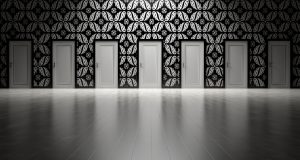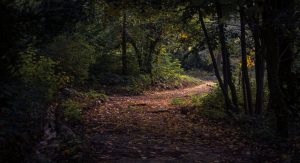Your alarm goes off. Groggy, you roll over and grab your cell phone to make a half-conscious decision of getting up or hitting the snooze button. Opting for the chance to snooze for five more minutes, you press the button and roll back over. You might do this a few more times, lazily preparing to take a quick shower or skip breakfast; or maybe you decided the night before to set your alarm to go off 15 minutes earlier than needed so you had the option. Eventually, you choose to rise to follow your morning routine, showering, dressing, and preparing for work or responsibilities. Each step of this process requires you to make choices.
It does not stop there. It is easy not to notice but making choices occurs every second of every day. On a daily basis, you have to choose what you absorb mentally and physically, and how you apply your energy. What you watch on television, look at on your phone, eat, and say to others (and yourself) involves decision-making.
But you knew that. That article has been written before. I’m not here to rehash a topic that you’ve probably already read about. Instead, I would like to twist this simple self-help subject into something novel, because let’s admit, we love novelty. It’s probably why you’re reading this article right now. So for a novel way to consider the choices we make, let’s explore what we might be teaching ourselves in the process.
Self-lessons based on choices is a broad topic so I’ll start at the beginning. Do you always realize you are making a choice in the moment? Choosing to brush your teeth or whether or whether or not to use your turn signal when driving, for example? Or do you seem to run on autopilot? The first lesson you teach yourself based on your choices is of cognizance. How engaged would you like to be? How much effort are you going to spend on making choices? Running on a mindless default abandons a significant number of the choices you make. They become routine. You will feel like you have less choice in many matters where you are actually the only one who can decide. Life can feel boring and that can be frustrating, or maybe you feel trapped because your choices are so few.
I am certainly not saying paying attention to your choices will fix all of those negative feelings, but it’s at least a start. By paying attention, you can start to break the rote patterns of mundane life, and alter the ways in which you handle the more intense moments. In an argument, is your default to shut down emotionally? If you ignore the problem, does it usually disappear? Or maybe you get loud and expressive, sometimes in not-so-productive ways?
When you pay attention, you can choose how to respond to both the little things and the big things in life. It gives you a chance to make the situation different from the past and presents a learning experience. We spend so much time unconsciously anticipating what will happen, while simultaneously repeating our patterns from the past. When we interrupt the future-focus and stop repeating past actions, and instead pay attention to this particular moment and scenario, we can make change. We can teach ourselves to grow.
In case you thought at any point this process would be easy, guess again. Teaching yourself new ways of being, perceiving, and responding is challenging. Our brains are lazy and would much rather conserve energy and rehearse what we have done for years. Not to mention, the pattern worked at some point. Old, even unhealthy patterns helped us survive and manage life up until now. But if you are considering making change, I am willing to assume you have noticed these means of existence are not leading to pleasant ends. It’s time to do something different.
Choosing to live, respond, and be healthy allows us to empower ourselves. Though we may be dragging our feet sometimes, when we arrive at a figurative fork in the road and choose the mentally and/ or physically healthy option, we benefit. The trick is noticing the choice is available. We reach those points of decision-making a million times a day, and if we realize the opportunity to teach ourselves different ways of being, the effects will be long-standing.




